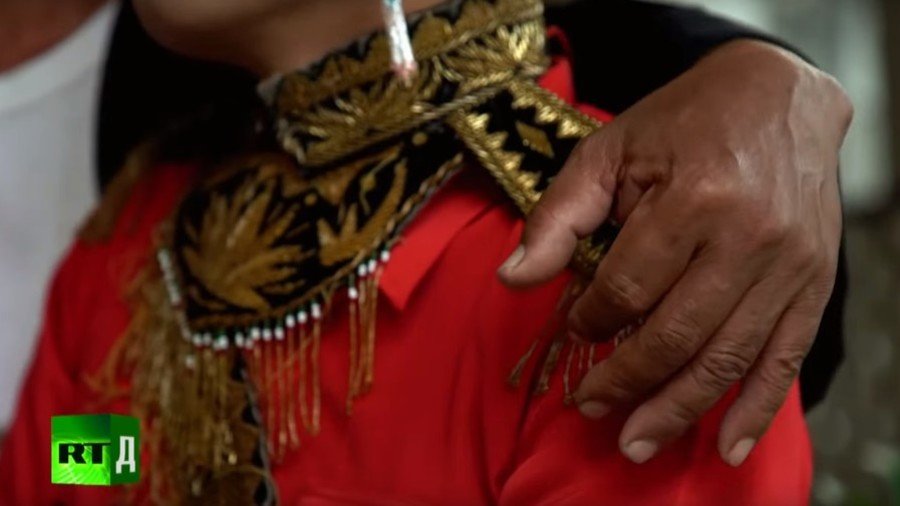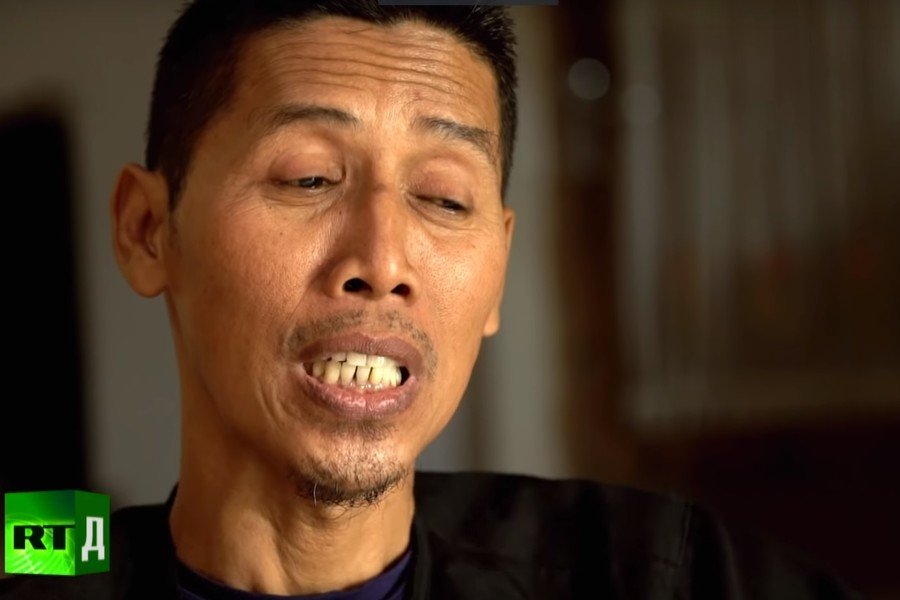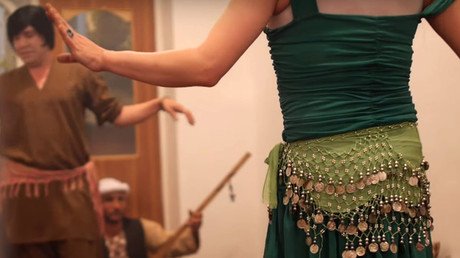‘We were poor kids, we didn’t understand’: RT sheds light on casual child abuse by shamanic cult

Under the guise of being “holy men, whose power is stolen by women” Indonesian shamans abuse dozens of boys each, often swapping victims between each other – in a tradition that persists in disregard of the law.
The waroks of East Java are world-renowned for their traditional masked dance, Reog Ponorogo, but in fact play a central role in rural communities as healers, advisors and elders.
Beyond that, they are known for another practice that was an official part of their role that is less commonly advertised today – taking on a boy servant, a gemblak, aged between 7 and 15, who caters to his master’s every whim.
RT Documentary traveled to Indonesia to speak to both waroks, and their gemblaks.
“Once you gain the magic power and knowledge, should you become fond of a female being, your power shall dwindle or be gone. To prevent this from happening we prefer the masculine love of a gemblak,” says Saadi, a warok, who currently has a pre-teen boy, Kadam, living in his house, who shows the crew his room, right next to his master’s from which he can be called at any time of day or night.
“As a compensation a warok gets an assistant – a beloved assistant. Why is he beloved? Because it’s a boy who understands a warok without words, they complete each other perfectly,” says Jemarin, a warok from West Java.
The practice predates the spread of Islam, and Dirman, a former gemblak who now speaks out against the tradition, never questioned it at the time.
“I didn’t understand it. I just went with the man I was told to go with, and did everything I was told. So I was just like most kids, and I took it casually,” he tells RT. “Since we were children, really young ones at that, we didn’t view physical involvement with the warok as something unusual. We simply slept with him.”
But who would agree to give away their children to a strange man, however respected in the community? And allow the waroks a 2-year contract that would give them complete control over their child?
“All gemblak boys came from poor families. These contracts were great financial help that was gladly accepted. After all, the parents were giving up a child of theirs because their life was so hard that they could hardly feed all of their kids,” says Dirman.

But while the contract assigned them the role of foster parents, it didn’t stop the waroks from operating their versions of an underage sex ring.
“We would spend two nights at this warok’s house, and the next two nights we would stay at that warok’s house, and so on. It kept on rotating for all houses of the waroks' community," recounts Dirman.
“Back in the good old days we could freely exchange gemblaks. I could have four at a time. One was my own personal gemblak while the other three were common property of a group of villages. In the past, there were so many gemblaks. If we found out there was a good-looking gemblak in a certain village, we could easily borrow him from them,” confirms Saadi, who says he has personally had over 100 gemblaks at his disposal.
Modernization and the increasingly strict imposition of Muslim faith mean that the “good old days” have receded and gemblaks no longer take pride of place as often during the Reog dance, but thousands of victims like Dirman still live with their past, often in conflicted shame.
And the problem has often simply been driven underground.
“Not all modern children are willing to become someone’s servants, and many prefer school,” says Dirman. “But the waroks are still out there offering their two-year contracts.”
Like this story? Share it with a friend!
















